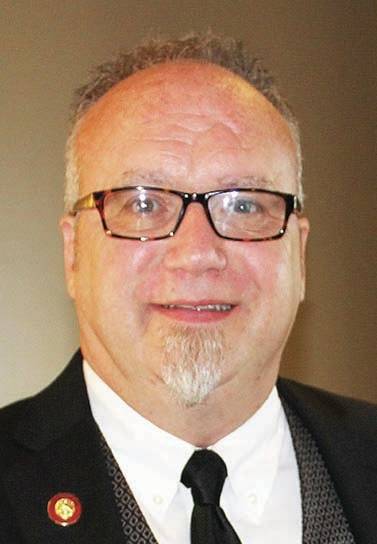Plain Thoughts: Stay humble
Published 10:37 am Friday, August 2, 2019
By Judith Victoria Hensley
Plain Thoughts
Someone recently made a comment to me to always “stay humble.” I thought I knew what that meant, but the more I thought about it, the more uncertain I was.
I’ve often hesitated to share good news with people who were my friends because I didn’t want them to think I was egotistic or that I was bragging. I’ve often let little successes in my life remain unshared because I didn’t want anyone to misunderstand my opinion of myself.
To me, staying humble means that if a person is successful in this life, they still remember where they came from and how hard they had to work to reach success. It also means realizing that there are many people who help along the way. To me personally it means remembering that I am imperfect and even when I do something right, there are plenty of other things that I need to do better. I can do nothing without the love and grace of God working in my life and my confidence that is found in Him.
I decided to dig a little deeper through the internet and see what I came up with about humility. According to Bing.com, The definition of humble is someone who knows they are not perfect. An example of humble is a general contractor being honest about not being great at plumbing. Humble is defined as to lower the condition or position of someone or something.
I found a psychological study by Pelin Kesebir that was quite surprising. She says, “Humility involves a willingness to accept the self’s limits and its place in the grand scheme of things, accompanied by low levels of self-preoccupation.” She describes humility as a “quiet ego” and says that research bears out that there are several benefits to being a humble person.
She notes that humble people are better able to cope with their humanity and can more easily accept their mortality without being preoccupied about death. She states that people who are humble make great leaders because they are willing to recognize their own mistakes and by being teachable themselves are more effective in their role of leadership. She also observes that humble people have a lesser sense of entitlement and are willing to be good students and hard workers to accomplish their goals. Perhaps one of the most positive conclusions Kesibir found out about humble people is that they have better relationships because they accept people for who they are.
Too often in religious circles, humility is associated with weakness or the notion that a humble person will volunteer to be a doormat and let others take advantage. It’s as if the prevailing thought is that a humble person has to let other people treat them like dirt and do nothing about it.
I really like what I found on Doug Britton’s website. “Many people have the wrong idea about God, the Bible and humility, or being humble. They think being humble means groveling in front of others or thinking they are no good and others are better. That’s not what the Bible says. God says when you are humble, you are free from pride and arrogance. You know that in your flesh you are inadequate, yet you also know who you are in Christ.”
I’ve often prayed that God would let me keep a childlike heart. I want to have faith like a child to believe the impossible. I want to see the beauty in simple things. I want to keep a sense of wonderment about life and about God. I want to be able to forgive those who hurt and disappoint me and be willing to give them another chance to do better. And when something great happens in my life, I want to be just as surprised about it as everybody else around me.





